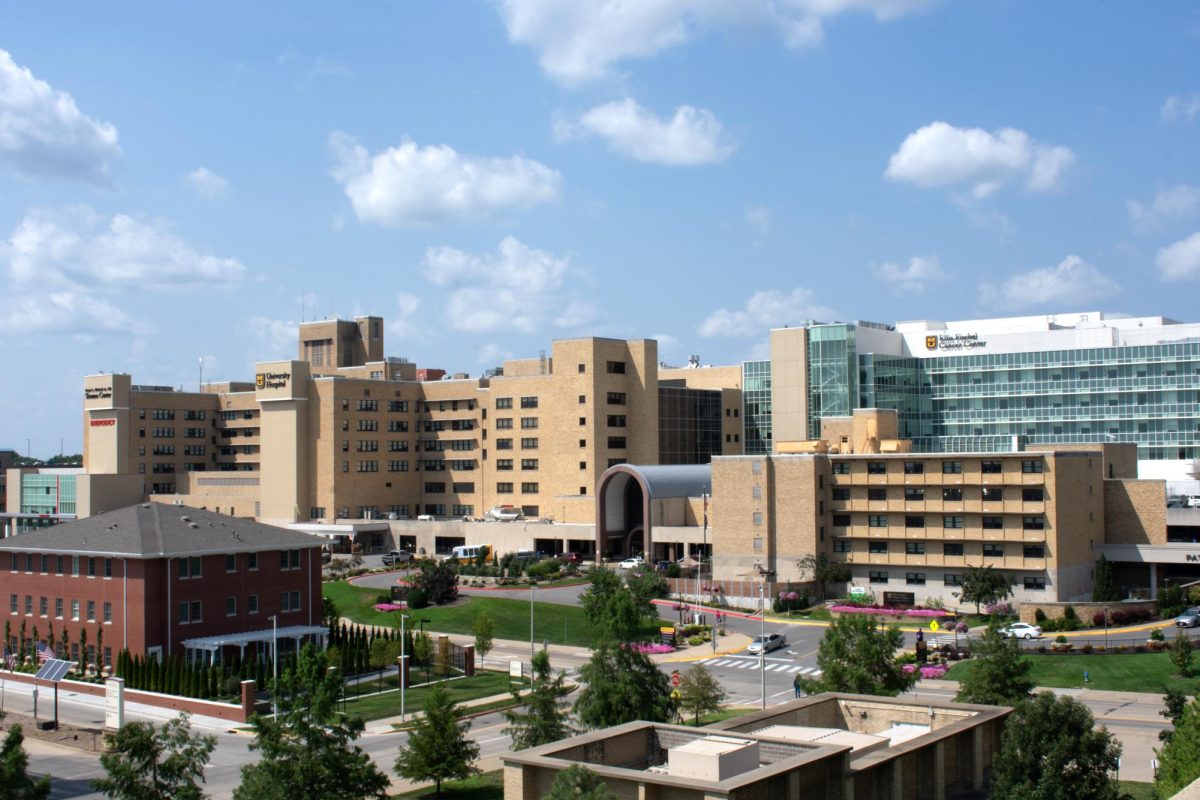For Kristofferson Culmer, president of the National Association of Graduate-Professional Students and chairman of the Forum on Graduate Rights, concern about the university’s treatment of and compensation for its graduate students did not begin with the health insurance coverage scare or the formation of FGR in August.
“With health insurance, that was basically the straw that broke the camel’s back,” Culmer said.
For organizations like the Graduate Professional Council, the efforts to meet the demands outlined by FGR this fall have gone on for years.
“GPC has been working on many of these issues for 15 years, and that has been documented in our resolutions we’ve passed, and that’s unacceptable,” GPC President Hallie Thompson said.
In spring 2015, former Chancellor R. Bowen Loftin requested a task force to assess the overall status of graduate students at the university. Shortly thereafter, Associate Vice Chancellor for Graduate Studies Leona Rubin formed the Task Force on the Graduate Student Experience, which released their [report](http://gradstudies.missouri.edu/gse-task-force/GSE%20Task%20Force_Final%20Report.pdf) in December.
Tracy Kitchel, the assistant vice provost for graduate and postdoctoral affairs and co-chair of the task force, said that the findings of the task force were not surprising.
“I think our office was aware of the issues and Graduate Professional Council had several resolutions over the last few years highlighting some of the issues that emerged,” Kitchel said in an email. “As the report outlines, graduate education, in general, needed attention on our campus.”
According to the report, the task force focused on Association of American Universities metrics and MU strategic planning goals to assess the current graduate student experience. They outlined three main recommendations to improve students’ quality of life and academic and non-academic resources.
The report also included suggested means to meet these goals. Broadly, those suggestions are to improve compensation and workload of graduate assistants and support structures for graduate students, as well as improving and promoting graduate education culture.
The task force found that in comparison with other AAU institutions, MU doctoral stipends are “$1,000-$3,000 lower depending on type (TA or RA), discipline and comparison regions (Midwest and South).”
Interim Chancellor Hank Foley addressed the issue of compensation in his State of the University address Wednesday, stating the minimum graduate stipend of $12,000 will increase $3,000 per year for the next two years to make the new minimum stipend $18,000. The other stipend levels will increase proportionally. This increase completes the suggestion outlined in the task force report in half the time.
“The Forum on Graduate Rights is pleased by the announcement and believes this to be a step toward advancing the well-being of graduate student employees at MU,” an [FGR statement after the address](http://www.mugradrights.org/statement-on-the-state-of-the-university-announcement/) read. “This success was made possible through the collective action and engagement of organized graduate student employees, graduate and professional students and our allies.”
The funds for the stipend increase will come from a reallocation of the general university budget, not from individual departments.
Regarding graduate student health insurance, the task force delegated much of the discussion to [a more specific task force](https://www.themaneater.com/stories/2015/12/21/graduate-students-not-satisfied-task-forces-soluti/). However, during his speech, Foley reiterated his guarantee of the current graduate student health insurance coverage for the next year as well as comparable coverage in the future.
The report also recommended full tuition waivers for those on departmental stipends or higher, as well as the elimination of departmental and supplemental fees.
“Stated simply, our task force feels graduate assistants should not have to endure additional financial burden by tuition if they are on a qualifying assistantship,” the report read.
In seeking to improve graduate student support structures, the report emphasized improving access to childcare and housing near campus, providing graduate students with better mentoring opportunities and improving communication with and for them.
The 2015 MU Graduate Housing Market Survey found that most current graduate housing options are “in old buildings and are generally small.” According to the survey, over 75 percent of all graduate students said that providing housing was either “extremely important” or “somewhat important.”
Vice Chancellor for Operations Gary Ward gave a presentation during a December UM System Board of Curators meeting on MU’s master plan, in which he discussed the need for more graduate student housing. He said that MU plans to use a private company to build a graduate housing complex at the site of former University Village and current University Heights, [according to previous Maneater reporting](https://www.themaneater.com/stories/2015/12/11/curators-discuss-moving-forward-after-challenging-/).
“That doesn’t mean it has funding, but that does mean it’s on their short list,” Thompson said.
The report also cited the 2014 MU Child Care Needs Assessment Survey, which found that 67 percent of students struggled to find childcare and that 60 percent would pay more for affordable childcare close to campus.
Both the members of the task force and the GPC view the lack of affordable childcare on and near campus as “an issue of women’s rights to higher education.”
In regards to graduate student culture, the report noted that often the GPC has been a “forgotten component of student government,” with the Missouri Students Association sometimes confused as being representative of the entire student body, not just undergraduates.
While the GPC has gained more recognition through student activism this year, especially during August 2015, there have been times where “MSA student body presidents were invited to events, and GPC was not,” Thompson said.
The report also called for the Office of Graduate Studies to be “afforded strategic communication staff to facilitate the sharing of graduate student successes,” in order to raise awareness of the entire graduate student body and its achievements in general.
Many task force members supported a shift from the Office of Graduate Studies back to a graduate school, in part because of the nature of each.
“A Graduate School has a Dean, which is an academic administrative position; an office has a different administrative position (at MU, it’s associate vice chancellor) that does not have the same academic connections to entities like council of deans,” Kitchel said.
The Office of Graduate Studies also does not report to the same offices as an academic entity like a school does, so some task force members believed it would be beneficial to align the school with the Office of the Provost, since it is the chief academic officer on campus.
While the increased stipends and potential housing are promising first steps toward bettering the graduate student experience, some of the initiatives, such as building housing close to campus and making childcare more available, won’t happen overnight.
“We realize the reality of the situation,” Culmer said. “It necessitates some patience. We have exercised that patience, and we are willing to dialogue with administration and other students about the issues grad students face.”
In an effort to increase that dialogue with the administration, FGR is working on a union card drive and plans to hold elections later this semester after they have a plurality.
“There needs to be a sustainable, consistent structure put in place to ensure that grad students always have a seat at the table to discuss these things as it pertains to compensation is what we really want to drive home,” Culmer said.
_Edited by Taylor Blatchford | [email protected]_













